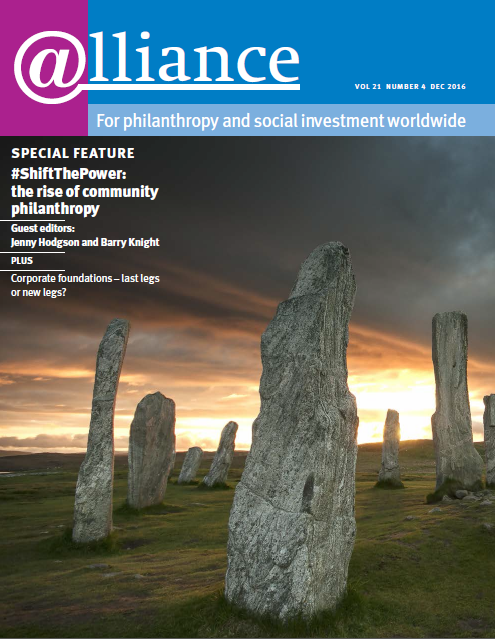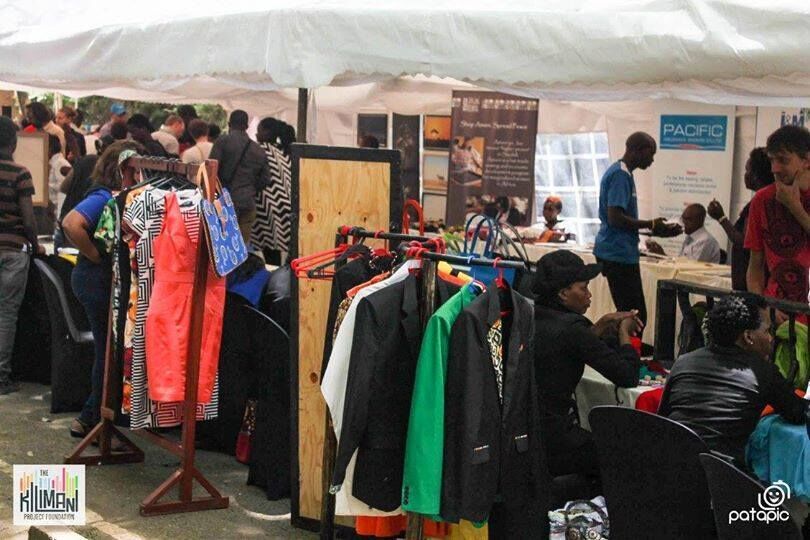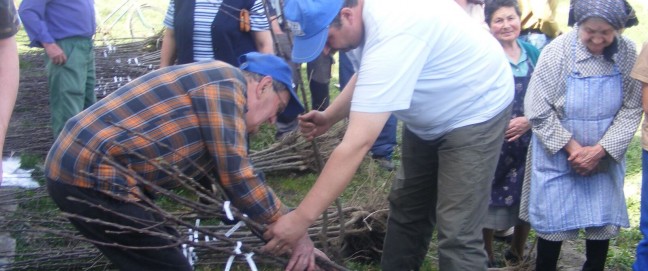Kenya, like the rest of Africa, is not overpopulated. It is just over-concentrated and deeply inequitable. At the same time, it is home to innovation, young industry, a growing internal consumer market and a middle class with disposable incomes. New opportunities for philanthropy exist in these new conditions.
In July 2016, Yetu, a community philanthropy initiative set up under the auspices of the Aga Khan Foundation USA and USAID, organized a twitter campaign (#KOT) which discovered that 93 per cent of Kenyans give. New narratives are also emerging. Dr Alex Awiti, director of the East African Institute at the Aga Khan University, tweets of philanthropic giving as an expression of sovereignty, the stirring of a society that wishes to be free of foreign development assistance. Public interest campaigners are also increasingly articulating the need for philanthropy to embrace governance, public spaces and public participation issues. They argue that mobilizing national and community resources to tackle systemic problems is a more effective response than development assistance.
Kilimani: an emerging model for community foundations
The Kilimani Project Foundation emerged out of the recognition that choice, livability and community empowerment were missing in one of Kenya’s high-density suburbs. While the area was a melting pot for brand companies, restaurants, malls, creative information technology hubs and arts centres, it was not yet an integrated neighbourhood.
Calls for residents to support government street clean-ups, raise funds for a new school canteen or donate trees for local public schools have seen new levels of generosity. While the foundation is yet to manage any form of endowment or generate a capacity to offer grants to community initiatives, this may not be very far off.
In the face of aggressive private investment, it suffers from overstretched public utilities. Residents remain uninformed about their rights and responsibilities. There is private security everywhere, yet most perceive themselves as insecure. There are regular electricity and water outages but no integrated public information system. As Kilimani’s population grows, ironically small and medium enterprises (SMEs) are being displaced. There is no skills building or market support for informal or small entrepreneurs despite growing potential markets. While diverse, the community is also divided. Most of the residents are walking complaints. Their experience of community is shrinking to their homes and wifi.
Community foundations have the power to transform this. The Kilimani Foundation has organized street festivals that have deepened a sense of relatedness in the community and an appreciation of small businesses. Residents have made use of the foundation’s social media platforms to express their concerns, offer new ideas and discuss their experiences. In a recent example, residents responded to noise pollution by nightclubs, construction, and even places of worship by rallying to #ICantSleep twitter campaigns to enforce local government bylaws.
While the area was a melting pot for brand companies, restaurants, malls, creative information technology hubs and arts centres, it was not yet an integrated neighbourhood.
Calls for residents to support government street clean-ups, raise funds for a new school canteen or donate trees for local public schools have seen new levels of generosity. While the foundation is yet to manage any form of endowment or generate a capacity to offer grants to community initiatives, this may not be very far off.
Two years ago, the world marked the first centenary of community foundations. As community foundations continue to grow in the global south, they must expand their financial sustainability base and remain rooted in the communities they serve. In this way, they will continue to bridge the space between citizens and the state. They can create the will and the means for communities and policy-makers to act collectively in the public interest.
Irũngũ Houghton is chairperson, Kilimani Project Foundation. Email chairperson@kilimani.co.ke
Constant Cap is coordinator, Kilimani Project Foundation. Email coordinator@kilimani.co.ke








Comments (0)